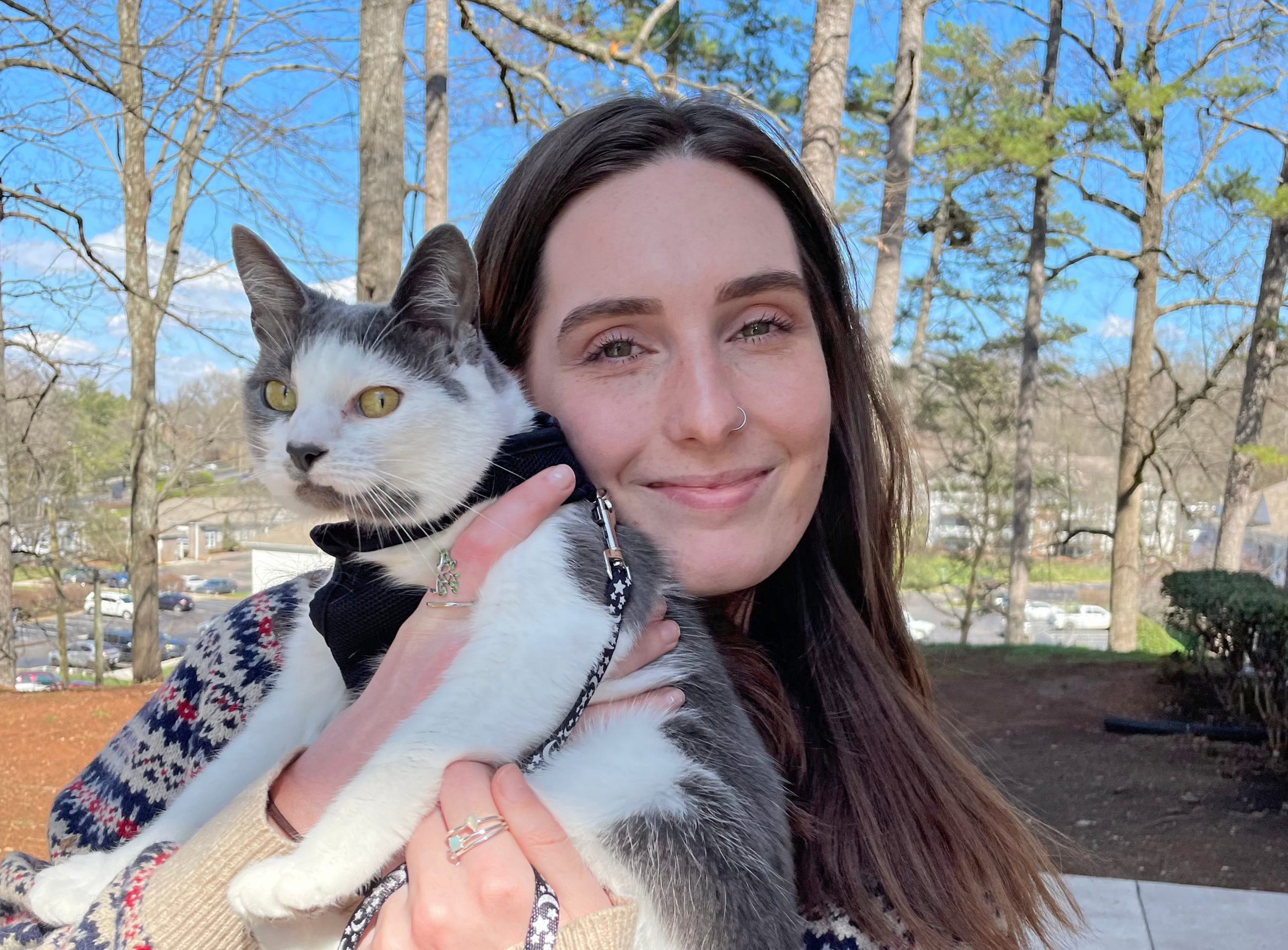Why Philosophy? Gabriella LaRose
Gabriella LaRose is interviewed by Céline Leboeuf.

Why Philosophy?
Gabriella LaRose
interviewed by Celine Leboeuf
What is philosophy to you?
When I first started studying philosophy, I was met at every turn with some of the most confident folks I had ever encountered. Classes were brimming with students who passionately (and loudly!) argued with tenured professors. Early on, I tried to emulate this because I thought that philosophy was constituted by the same demonstrations of raw intelligence I saw at every turn. I mean, everyone I knew who was successful in philosophy exhibited the same unmatched confidence, persistence, and quickness of mind. Thankfully, this perception of philosophy faded as time went on, and I now think the act of philosophizing is a more natural practice that does not require winners and losers, a scorekeeper, or a chess clock. Philosophy, seen as this natural practice, is the act of reflecting on and articulating problems (and solutions!) to questions we have about the world. Importantly, I see philosophy as something that children can do when confronted with new situations, teenagers can do when navigating their budding adulthood, and we can do as professionals for money. As far as I am concerned, these are all valid instances of philosophizing. While the version of philosophy that professionals do undoubtedly requires more nuance and a deeper pool of literature to pull from, I do not see it as much different from seeking answers to the reflective questions we are all apt to ask.
How were you first introduced to philosophy?
As a naturally inquisitive person, I encountered philosophy in bits and pieces all through my childhood. If you buy my ‘practice’ view of philosophy, I encountered it in the form of asides within my favorite childhood novels and at the dinner table with my family. I have always found myself asking big questions and often found the answers to these questions insufficient. I was on Tumblr dot com as a teen, and so I read small and poignant excerpts from Camus’ The Myth of Sisyphus and bell hooks’ The Will to Change to name two influential examples. Later, in college, I was introduced to academic philosophy almost accidentally, by fulfilling various Gen-Ed requirements. I quickly took to reading the classics you might associate with angsty youths—Nietzsche, Jean-Paul Sartre, and Simone de Beauvoir. From there, I have never looked back.
How do you practice philosophy today?
I am currently a graduate student at the University of Arizona. So, it’s my day job (that I love very much!). My areas of interest are philosophy of language and aesthetics, particularly where the two intersect. Luckily, there is a current trend in the aesthetics literature to discuss not only classically interesting topics in aesthetics like music, aesthetic value, and fine art but also Marvel movies, Appalachian murder ballads, and fan fiction. I am lucky enough to be a part of a fantastic community of folks who talk shop with me about fourth wall breaks, jabberwocky terms, and comic books. I try to keep from talking academic philosophy outside of work contexts, but sometimes I find myself going on diatribes about fiction—particularly how cool and philosophically complex it is.
What is a philosophical issue that is important to you?
Diversifying philosophy syllabi. While I am not in the business of telling folks further along in their careers that they need to change, I think there is something valuable in professors taking syllabus diversity seriously. This includes assigning readings from underrepresented groups and also readings from outside philosophy. As a young student, I adored courses where we read poetry alongside environmental ethics, psychology and philosophy of action, and music theory with aesthetics. I think it’s misguided to believe there is only one way to institute rigor in the classroom, and while there is a traditional set of readings “all philosophers must know,” we can challenge students to engage with different perspectives alongside these traditional readings to push their engagement further. Our profession is full of diverse and interdisciplinary perspectives. I think the readings we assign should be just as diverse and interdisciplinary as the students we teach. I cannot recommend these resources enough—Diversifying Syllabi Blog, Readings on the Less Commonly Taught Philosophies, and The Deviant Philosopher—if you, like me, want to make diverse syllabi but don’t know where to begin.
What books, podcasts, or other media would you recommend to anyone interested in philosophy?
There is some amazing work being done in the aesthetics space on blogs. So, I recommend anyone interested check out The Junkyard of the Mind (devoted to imagination) and Aesthetics for Birds. I also really like the discussions happening on YouTube over at Philosophers Discussing Art. I am currently enjoying reading Mary Astell’s A Serious Proposal to the Ladies, a 17th-century take on women’s philosophical education. If you want recommendations for works of fiction that spark some interesting philosophical reflection (but are not academically philosophical), I recommend Piranesi by Susana Clarke, Anathem by Neal Stephenson, and Solaris by Stanislaw Lem.
This interview of Gabriella LaRose was first published at Why Philosophy?
Gabriella (Ella) LaRose, is a second-year Ph.D. student in philosophy at the University of Arizona. She earned her bachelor’s degree at the University of Tennessee and her master’s from Colorado State University, both in philosophy. Her interests exist at the intersection of aesthetics, metaphysics, and philosophy of language. Away from her armchair, she enjoys spending time with her cats, knitting, taking photos on film, and snowboarding. You can find her personal website here.

